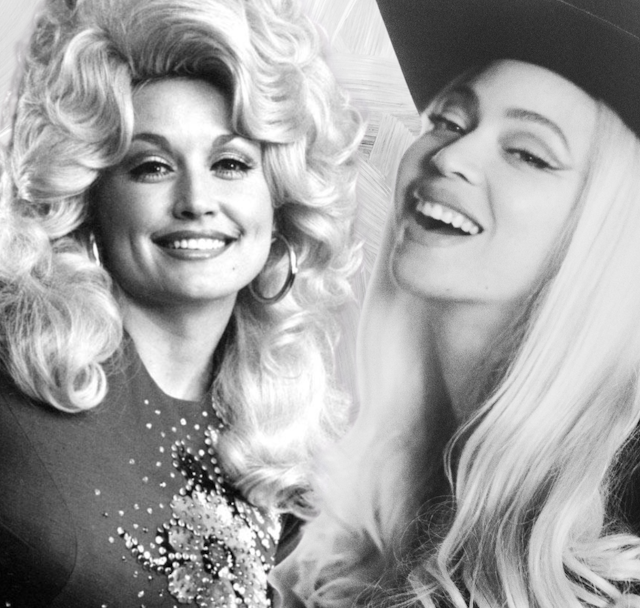On her new album, Cowboy Carter, Beyoncé puts a new spin on Dolly Parton’s classic song, Jolene. Though the album has achieved critical acclaim and commercial success from the start, it has also attracted some pushback.
It’s only natural that Beyoncé’s cover version would be compared to the 1973 original. Some people commenting online were vocal about not liking Beyoncé’s version, often citing its lack of vulnerability when compared to Parton’s version. But is vulnerability essential to the tale of Jolene?
There are upwards of 80 covers of Jolene, but Beyoncé’s is a departure from the rest. With significant lyrical changes, an added bridge and the voice of male country singer Willie Jones, the 2024 Jolene has a very different attitude. The Houston native’s Jolene is decidedly Black, and therein lies the crux of the different reactions towards the song.
Both versions of Jolene are about dealing with the threat of infidelity. It is important to examine the story Dolly Parton tells on Jolene because it, too, is rooted in her racial and gendered identity as much as Beyoncé’s Jolene is. But whiteness often goes unremarked upon.
The country genre is famed for storytelling and in this play between two white women, Parton is negotiating with Jolene based on conventions of the white southern womanhood and the gentility expected (or performed). The traditional southern belle femininity adheres to strict gender roles. She is a woman who is demure, chaste and charming. Think Scarlet O'Hara of Gone with the Wind or even Blanche Devereaux from The Golden Girls.
Parton is guileless as she charms Jolene with flattery about her beauty and ability to have any man she likes. Parton pleads, justifying the years she has invested in him and stresses that she will never love again.
The contrast between Parton and Jolene’s aesthetics are meant to convey a stark distinction in beauty and insecurity. Parton is blonde and blue eyed, an archetypal beauty that is associated with purity and innocence. While Jolene is fiery and wayward, with her auburn hair and her envious green eyes.
But it’s hard for me to think that Parton’s self-effacing isn’t a pointed performance of white, southern belle femininity. In her words, you have to read a little deeper to understand what is really going on.
Tension is at the core of Jolene. As linguistic anthropologist Marcyliena Morgan writes about southern language, Parton is confined in that genteel white femininity, unable to transgress its boundaries with even a hint of anger. She made this song at a time when the feminist movement was at its second-wave peak, but many white women in the south were politically conservative and saw the movement as a threat.
How is Beyoncé’s story the same but different?
Beyoncé’s song changes the story and takes it further. Towards the end of the song, Beyoncé and her partner turn a corner and offer hope against the disruption that Jolene represents. Beyoncé gets a boost from her husband’s help, this is communicated via an African American call and response motif where they express to Jolene their commitment to each other.
Beyoncé’s Jolene is introduced by Dolly Parton herself in a short interlude. Parton makes a clear association between her experience with Jolene and Beyoncé’s experience with “Becky with the good hair” (or “hussy” as Parton says).
In African American language, a “Becky” is a white woman. But the term has evolved to encompass racially ambiguous women with European or Asian features, lighter skin and loose curls or straight hair. The Becky in Jolene recalls the woman referenced in Sorry, a track on the Lemonade album, where Beyoncé identifies a woman her husband is cheating with.
Beyoncé employs a lot of what linguistics academic Alexis McGee terms African American women’s language (AAWL), or culturally familiar terms to Black southern women. “You’re a bird” (a shallow, temporary romantic interest), “you don’t want no heat with me”, “you don’t want this smoke”, and “I hate to have to act a fool”, among others. The entire song is rooted in AAWL.
Where Parton pleads, Beyoncé warns. Where Parton plies with charm, Beyoncé employs grit.
The concept of a femininity where “good” is predicated on charm, vulnerability and purity, and “bad” is aggressive, manipulative and sexually autonomous is a limited, binary one constructed by white patriarchy. It is a concept against which Black women can never measure up because we aren’t supposed to.
Instead, Beyoncé explores the multitudes of her Black identity and her Black southern femininity. She asserts that she is both a “queen” and a “Creole Banjee bitch from Louisianna”. Her roles as mother, partner, protector and head of the family unit are all noted in the song.
The original song speaks to a young woman compelled to save her husband from his own betrayal. Parton leaves her man blameless for his infatuation with the fiery-haired Jolene (even though he murmurs about her in his sleep).
Beyoncé on the other hand is performing the Black, southern femininity of a woman in her 40s who has already experienced the betrayal of infidelity, and this time her husband stands with her to ward off the other woman’s uninvited advances (“I’ma stand by her, she gon’ stand by me”). The bridge of the song calls back to a marriage that has processed the pain of infidelity and is rooted in their renewed commitment (“‘cause you can’t dig up our planted seeds”)
The threat of infidelity is the same, but how the two women negotiate it is a reflection of their age, race and experiences of womanhood. Why would we expect the song to be the same when these two women are far from?

Looking for something good? Cut through the noise with a carefully curated selection of the latest releases, live events and exhibitions, straight to your inbox every fortnight, on Fridays. Sign up here.

